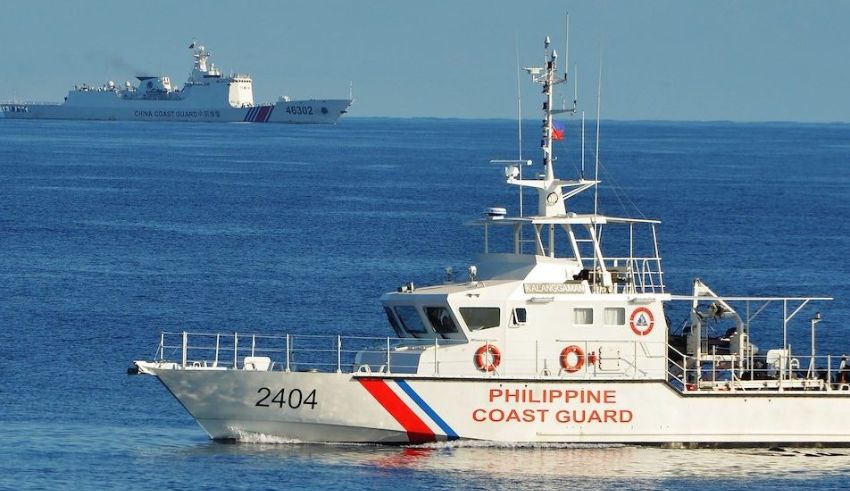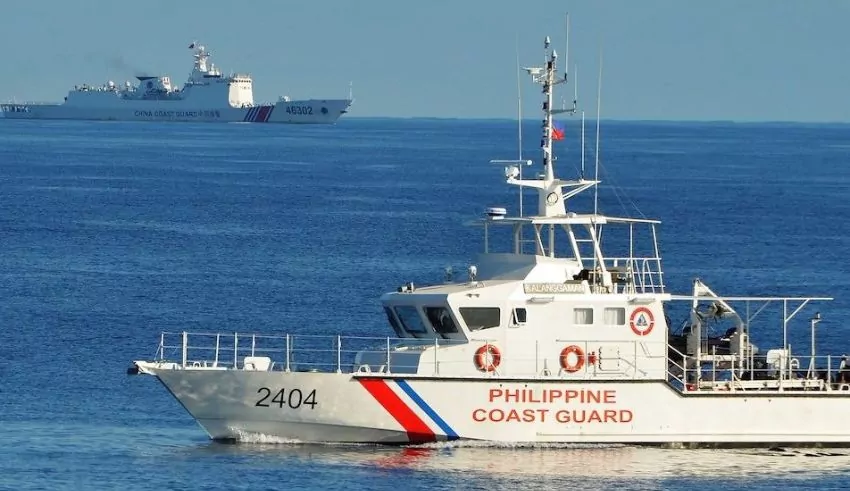

(C) ISEAS-Yusof Ishak Institute
President Ferdinand Marcos Jr. of the Philippines had a puzzling and, some may say, unusually personal interaction with China’s representative in Manila amid the constantly rising tensions in the South China Sea.
He publicly aired his concerns while still taking an unwavering stance on marine matters, which demonstrated his anger and perplexity about the region’s escalating tensions. President Marcos made it plain that he will defend the Philippines and its fishermen’s rights in the South China Sea.
The Philippines, which had previously won a significant 2016 international tribunal judgement against China’s sweeping claims in the South China Sea, is now considering a fresh legal conflict in a surprise and perhaps ground-breaking step. This time, the claimed environmental harm brought on by Chinese activity in the area is the legal center of attention. While some experts suggest that another legal victory for the Philippines might not have a practical impact on China, it could significantly impact its global reputation. This move may mark a unique chapter in the history of international relations and legal battles.
The seven-year delay since the last decision gives this scenario an exciting new dimension. This void is a rare chance to refocus attention on the urgent environmental issues in the region and to reopen the discussion over China’s conduct in the South China Sea.
However, pursuing this legal avenue comes with a set of complex considerations and potential pitfalls. The cost of litigation is a significant concern, and the reputational damage that China incurred from its absence during the first tribunal could potentially lead to its active participation in future legal proceedings, although China prefers diplomatic negotiation.
A fresh case might provoke China more, which has already used deadly but non-lethal means to intimidate the Philippine military in the South China Sea. The conflict’s human component highlights how high the stakes are.
However, other professionals vehemently contend that it is risky to legally challenge China. According to them, it highlights China’s actions as a belligerent and uncooperative state and brings the South China Sea conflict back into the international community’s radar.
This dedication to utilizing the rule of law to resolve intricate geopolitical problems in a world frequently dominated by power politics is proof of the lasting significance of human values and principles in international affairs.
It is encouraged that the international community, especially democratic friends, take a special and beneficial role. They are tasked with influencing the Marcos government to implement governance changes via trade, investment, and support for capacity-building.
This innovative strategy aims to assist the Philippines in becoming a more liberated, secure, and dynamic country and in reaching its full potential as a vibrant democracy in the intricate fabric of the twenty-first century. By doing so, it emphasizes how crucial international collaboration and assistance are in resolving both geopolitical problems and the fundamental human values that form the basis of our global civilization.
The stepping down of Piyush Gupta from the post of CEO of DBS Bank came after 15 years of leading…
The Delhi Directorate of Education releases 2025-26 marks for year-end tests in school levels 6 through 11. Online test data…
Singapore will further cement its status as an important basketball destination when it hosts three FIBA 3x3 events in 2026…
Jewel Section E, directed by Theodore Boborol and starring Ashtine Olviga as Jay-Jay Mariano, Andres Muhlach as Mark Keifer Watson,…
Cebu Pacific celebrates the delivery of its very first aircraft for 2025, the 459-seat Airbus A330neo, delivered at Ninoy Aquino…
March 29, 2025, will deliver the first solar eclipse of the year when observers from numerous continents can witness this…
This website uses cookies.
Read More